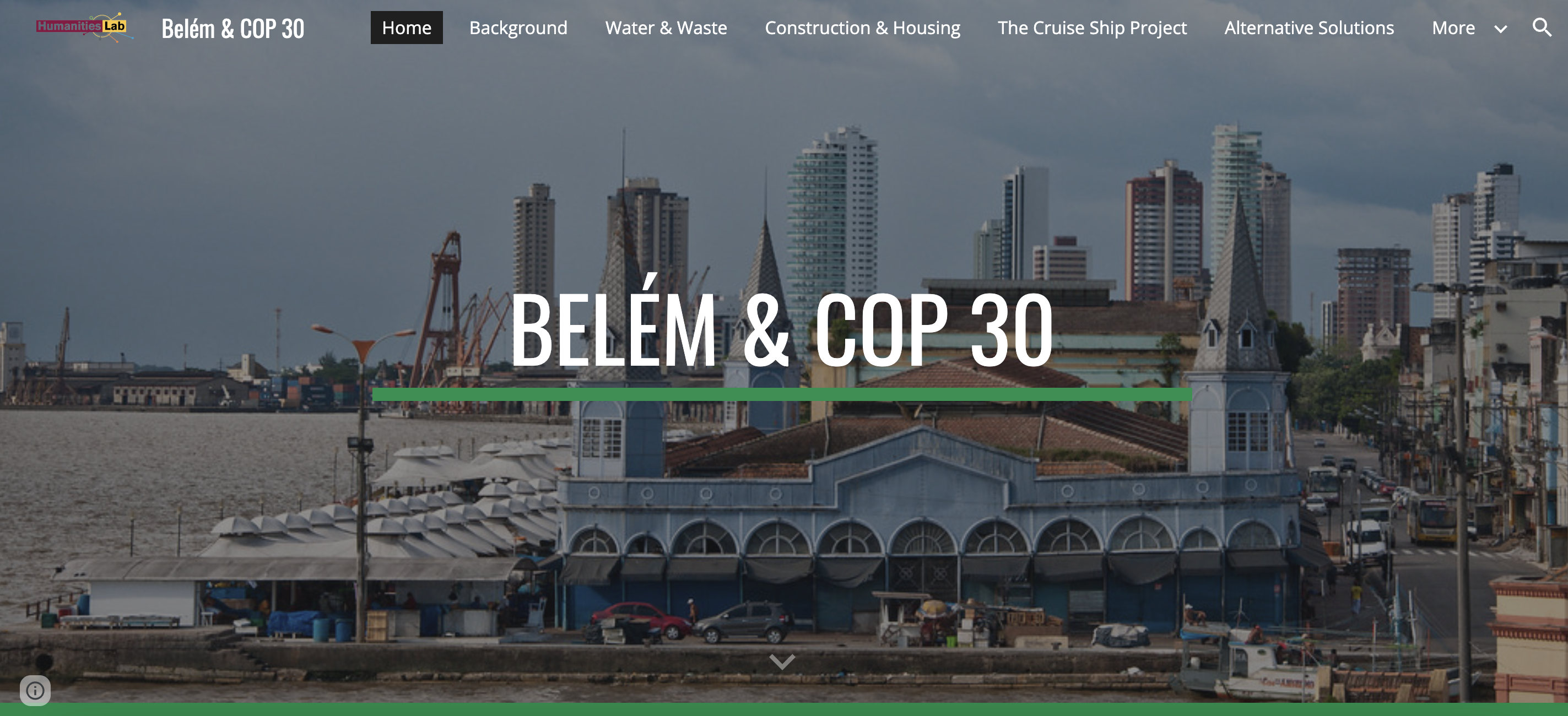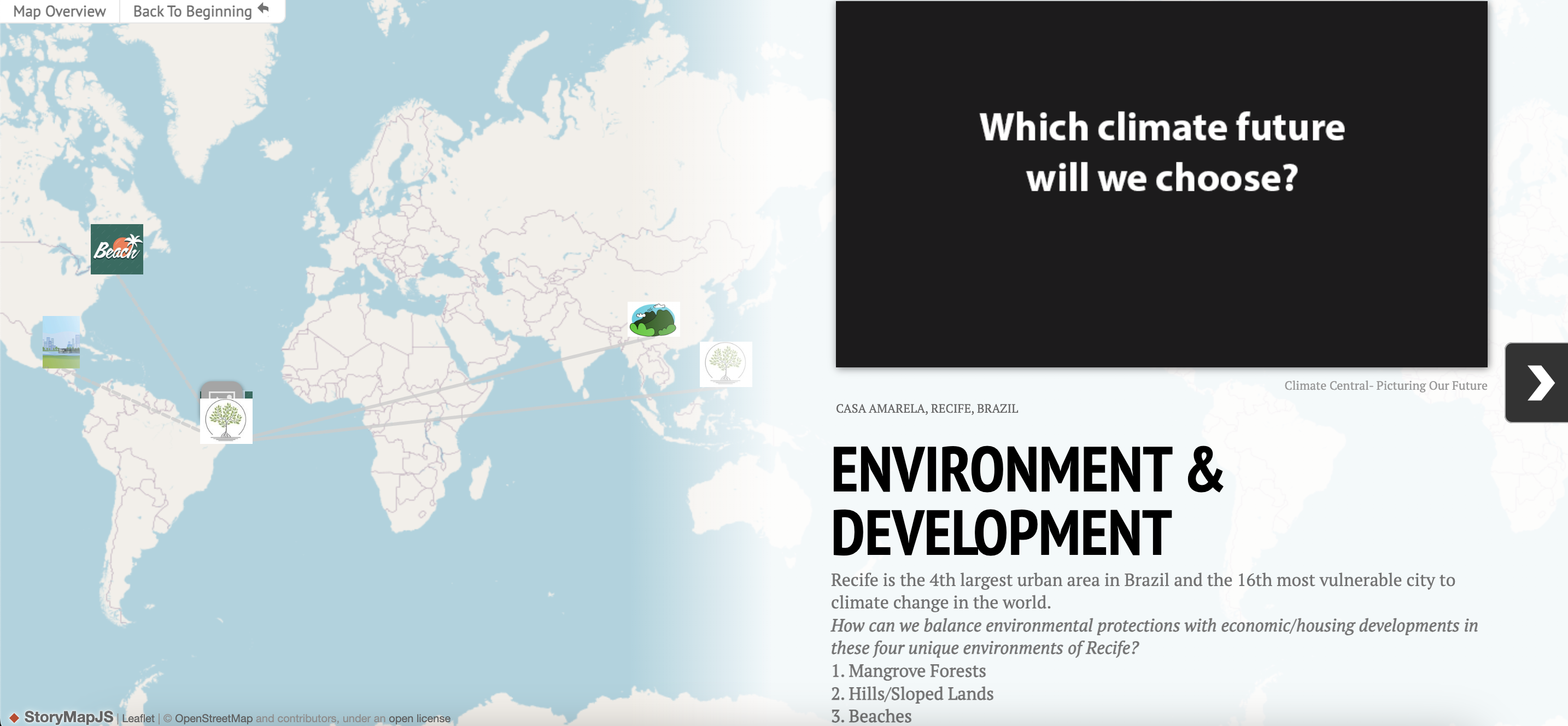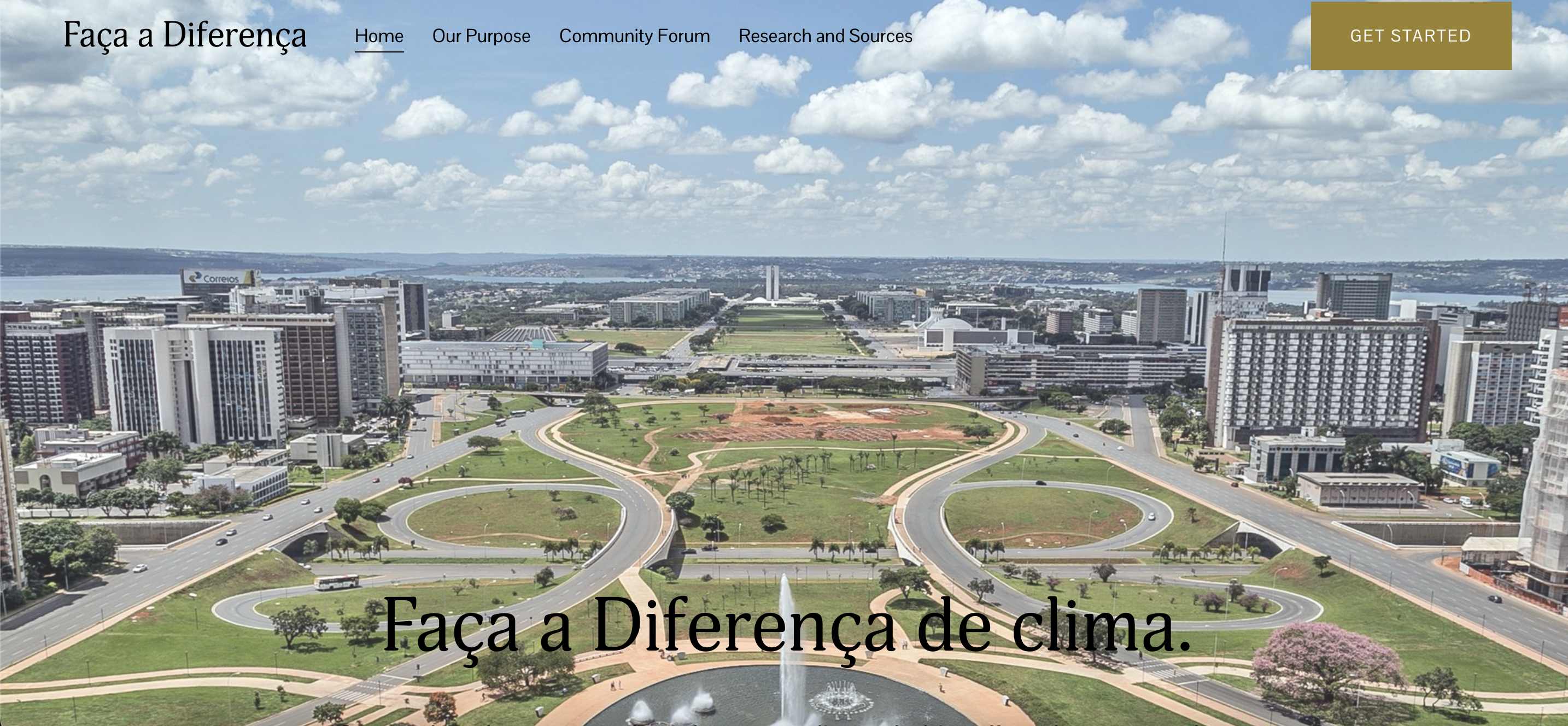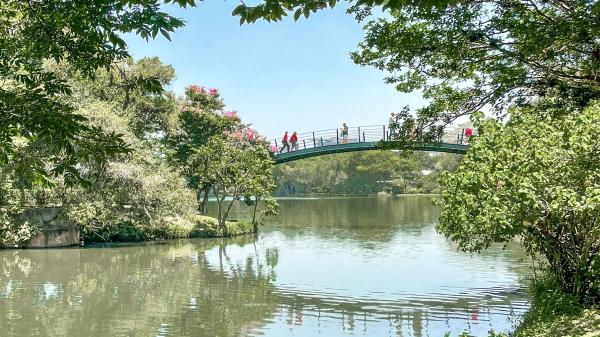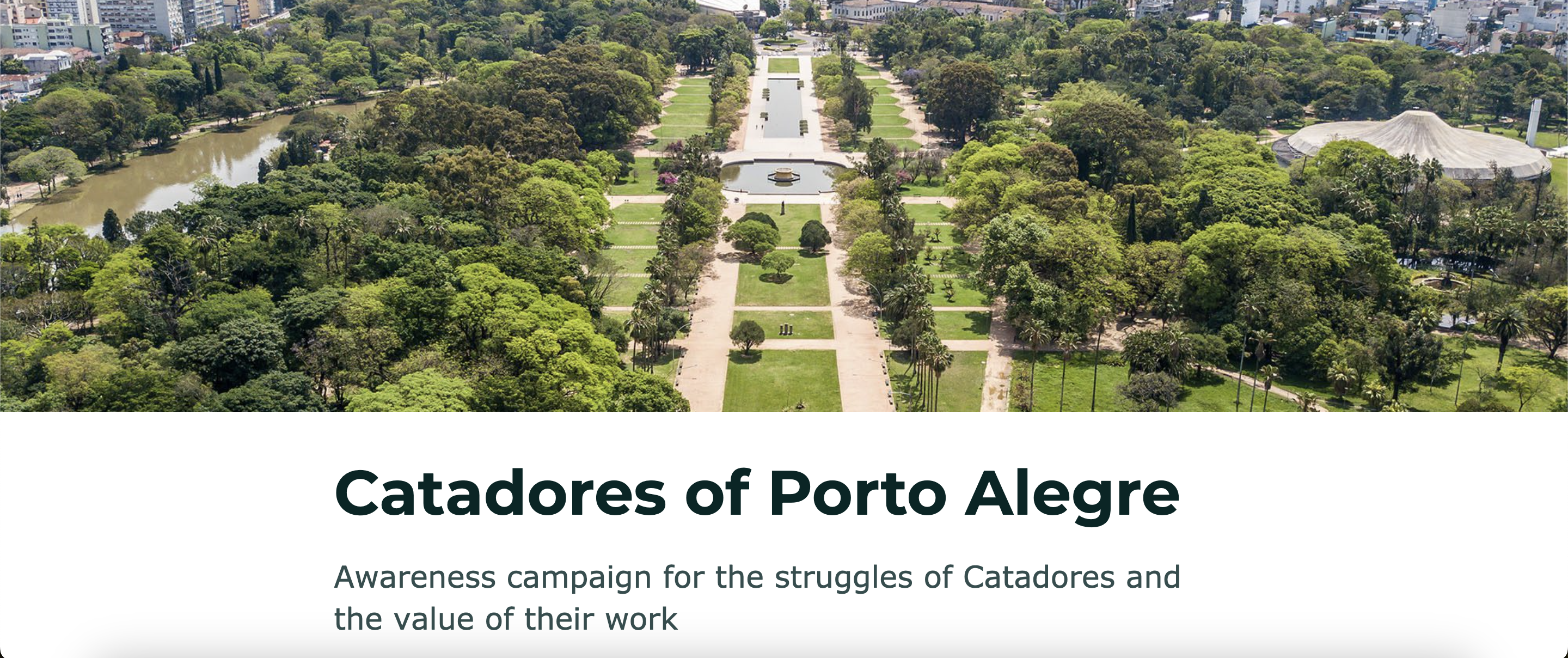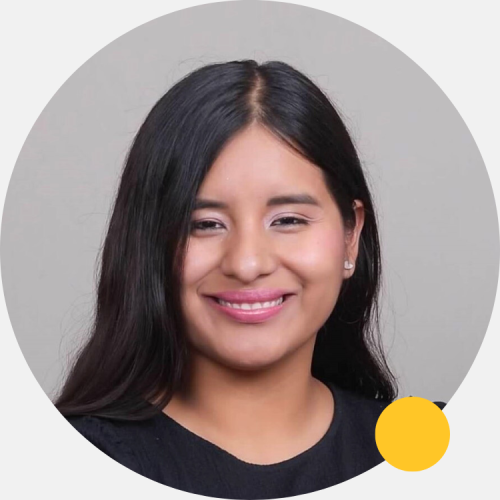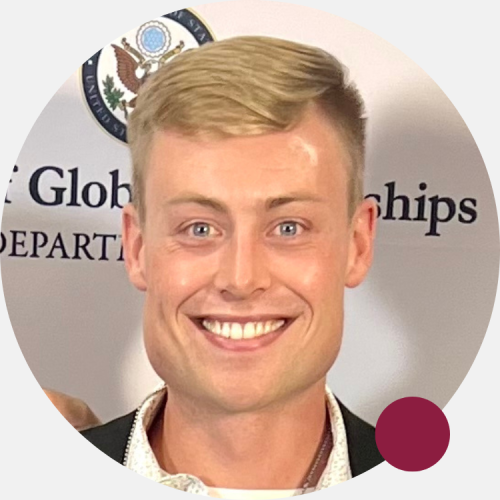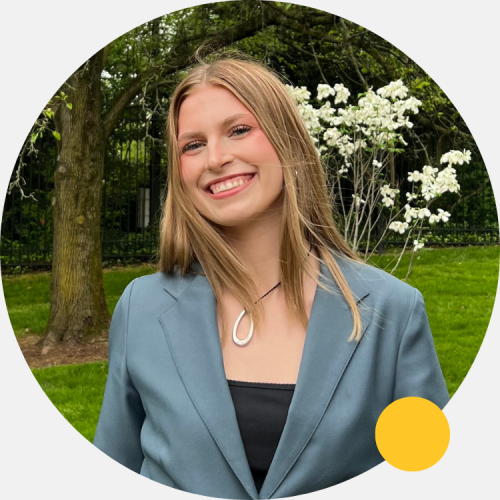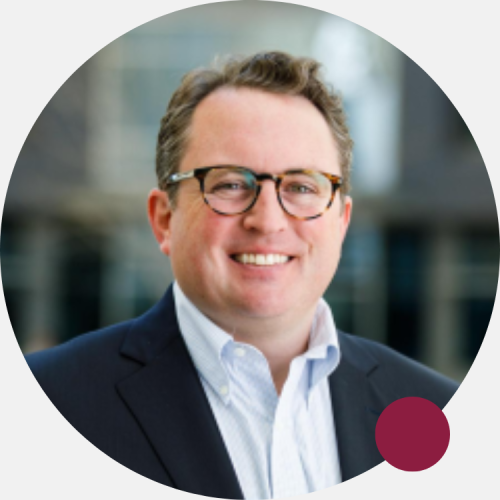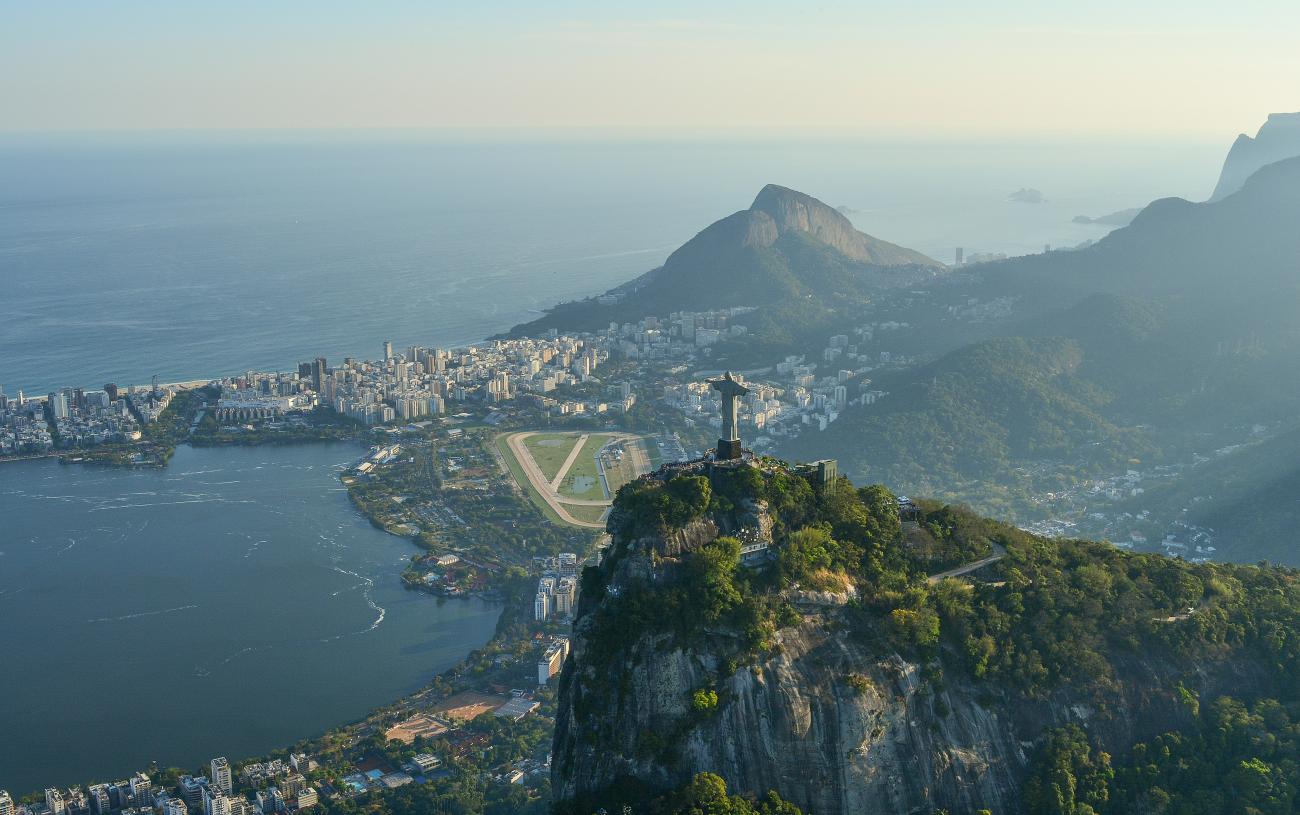
Diplomacy Lab Brazil Impact Outcomes
Diplomacy Lab Brazil
Students in the Diplomacy Lab: Brazil course spent the spring 2023 semester partnering with co-faculty Glen Goodman, Senior Director for Latin America with ASU's International Development Initiative and a Clinical Assistant Professor of Brazilian Studies from the School of International Letters and Cultures and the College —and Mary Jane Parmentier Deputy Director and Professor at the School for the Future of Innovation in Society at the College of Global Futures. Associate Librarian in the Social Sciences Division of ASU Library, Brad Vogus, was also a key part of the instructional team. Together the student-faculty-librarian team collaboratively investigated the meaning of diplomacy, working to uncover its relationship to climate, health, societal, and economic issues in Brazil.
Student Outcomes
Belém & COP 30
A team of students undertook a project, focusing on addressing urban climate change in Brazil, particularly in Belém, the site for COP 30 in 2025. Their research aims to highlight the significance of urban areas in the Amazon Rainforest region, where most Brazilians reside. They explore the potential of COP 30 in Belém as a pivotal moment for global climate action, questioning whether it will be a turning point or merely a symbolic gesture. Through their project, they aim to disseminate their findings and insights, shedding light on the challenges and opportunities of hosting such a significant climate conference in a rapidly urbanizing region like Belém. Read more here.
Water Access, Climate Justice, and Socio-Environmental Innovation in Rio de Janeiro
Another team of students conducted a final project focusing on Rio de Janeiro's water crisis, exacerbated by climate change and urbanization. They highlighted the unequal distribution of clean water, particularly affecting vulnerable favela communities. The project emphasized community-led solutions like biodigesters in favelas, advocating for tailored interventions to address specific community needs. Their conclusion emphasized replicating successful community-led innovations citywide to tackle the water crisis effectively. Read more here.
Environment and Development in Recife
Examining the challenge of balancing environmental protection with economic and housing development in Recife, Brazil, was the work of another student-team. They focused on four distinct environments: mangrove forests, hills/sloped lands, beaches, and rivers. The project aimed to explore sustainable solutions to mitigate the impact of climate change in the 4th largest urban area in Brazil ranked as the 16th most vulnerable city globally. Read more here.
Faça a Diferença
Focused on creating educational outreach programs in Brasilia, Brazil, raising awareness about CO2 emissions and advocating for individual lifestyle changes to ensure a better future, this student team created designed a project which translated into English means, "Make a Difference." The team established a community forum to encourage collaboration and connect like-minded individuals passionate about addressing the climate crisis. By emphasizing the significance of individual action and fostering a sense of community, the project sought to empower citizens to contribute to collective efforts in overcoming environmental challenges. Read more here.
São Paulo
This final project, undertaken by a group of students, focused on the role of Non-Governmental Organizations (NGOs) in combating water pollution in São Paulo, Brazil. The students advocated for public-private partnerships to improve sewage infrastructure while emphasizing community participation in addressing water quality issues. Their goal was to promote knowledge, community resilience, and advocacy, including supporting artistic endeavors that raise awareness of environmental challenges in São Paulo. Through their research and outreach efforts, they aimed to facilitate positive change in the region's water systems. Read more here.
Catadores of Porto Alegre
Catadores (collectors) in Porto Alegre, Brazil play a crucial role in waste management and environmental conservation. In support of their work, this student team proposed regulatory changes, including funding allocations for waste management initiatives, highlighted the importance of holistic approaches and community engagement. By narrating the Catadores' daily lives and achievements, the project aimed to foster understanding and appreciation for their work while promoting sustainable waste management practices in Porto Alegre and beyond. Read more here.
Brazil GIE Trip
During spring break, a team of students from the Diplomacy Lab course traveled with course Professors Goodman and Parmentier to Brazil's capital as part of a ASU's Global Intensive Experience program. The students met with diplomats at the U.S. Embassy in Brazil, Brazilian ministries, Indigenous and climate activists and also people from the general population of Brazil as an immersive experience into Brazil's government and culture.
Students were able to get a first-hand view of adjacent agriculture and ranching zones as well as other climate affected areas that provided deeper insights into some of the Diplomacy Lab project cities and sustainability concerns students worked to help abate.
Washington D.C. Trip
During the last week of the course, with generous funding from the humanities and social sciences divisions of The College of Liberal Arts and Sciences, ten students from the Diplomacy Lab course traveled to the United States capital to present their semester-long research outcomes at the Diplomacy Lab Fair. They presented innovative sustainability mitigations for their assigned challenges to U.S. Department of State officers as well as peers and professors from the collegiate Diplomacy Lab network.
In addition to the Fair, during their stay in Washington D.C., students met with diplomats at the Brazilian Embassy, visited the office of Arizona Senator Kyrsten Sinema, met with diplomats at the U.S. Organization of American States and also with officials at the United States Agency for International Development office.
The immersive experience afforded students a lens into various careers in global foreign policy and sustainability. You can read more about their experience at the ASU News story Students travel to DC to present proposals on climate change.
Media Coverage
ASU News. Students travel to DC to present proposals on climate change. By: Maureen Kobierowski (04/30/2024)
Collaborative Partners
- Department of State
- U.S. Embassy Brasilia
Note: The views presented or expressed on this page are those of the speaker or author only and do not necessarily represent the views of Arizona State University.
